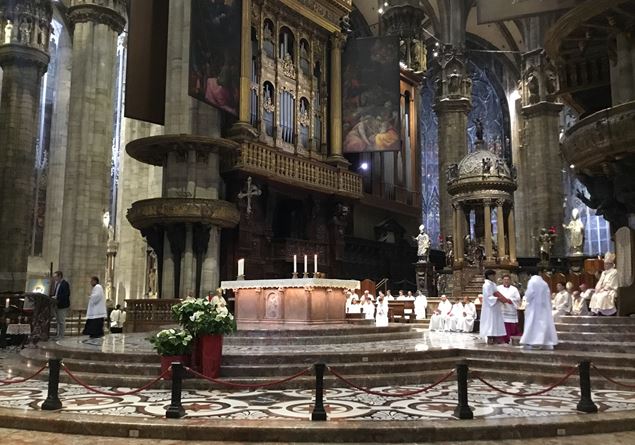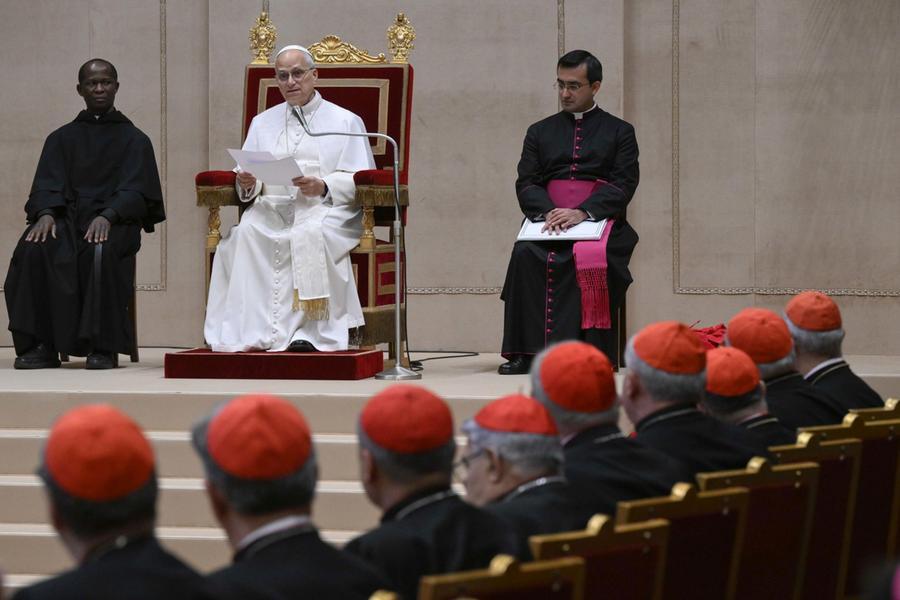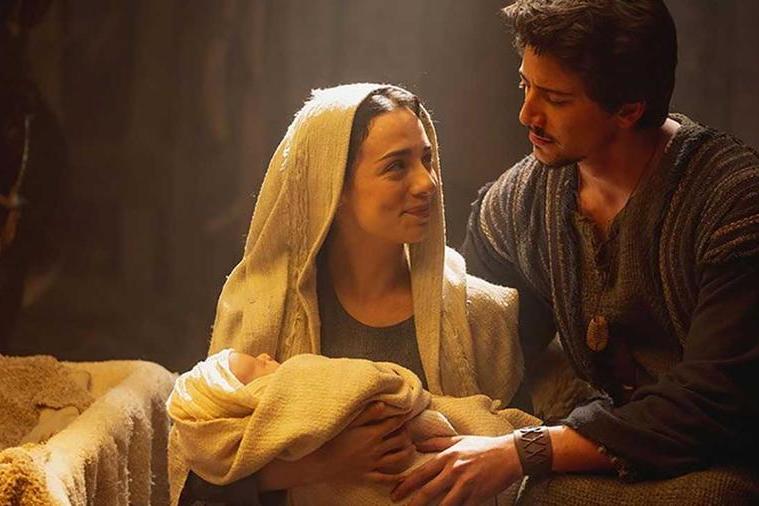The city of Milan and adolescence, with their difficulties and problems, are not an obstacle to faith but can even become the right place “to become saints”. And illness and death, dark and dramatic passages for all men, even for those who believe, can reconnect us to the “God of life and joy”.
This, in short, is the identikit of the relationship between San Carlo Acutis and the city where he grew up traced by the archbishop of Milan, Mario Delpini, in the homily of the Mass of thanksgiving for the canonization on 7 September which he presided over on Monday evening in the Cathedral, the day after the liturgical feast of the new Saint.
Also concelebrating was the bishop of Assisi, Domenico Sorrentino, city in whose Sanctuary of the Dispossession the remains of the young Saint rest, an incessant destination for thousands of pilgrims. On the side of the altar, the painting of Carlo Acutis and one of his relics, carried in procession by Sorrentino and in front of which the two bishops lit a candle at the beginning of the Mass. In the front row the mother Antonia Salzano and the delegations of the schools attended by Carlo, the Marcelline and the Leo XIII Institute of the Jesuits.
The choirs of the Pastoral community of Cologno Monzese, named after San Carlo Acutis, of Calò and the Choir Ensemble Vox Cordis directed by Roberto Bacchini who composed the hymn for Acutis while the first reading was “replaced” by the reading of the life of the Saint as required by the Ambrosian Rite. The city, said Archbishop Delpini, «is difficult, the city is problematic, the city attracts with its promises and repels with its harshness, the city is unjust, the city is dangerous, the city has lost its soul, the city is a tangle of complications, the city is besieged by the underworld, the city contains all the problems of the world. In this city”, he continued, “there lived a boy who, from the time he made his first communion until he was fifteen, prayed the rosary every day, attended mass every day, stopped in church to pray alone every day. In the difficult city”, the archbishop remarked, “the Lord continues to attract to himself, continues to open highways to heaven, continues to sow compassion to work for the poor. Many things can be said about the city. However, it must also be said that the city is a place where one can become a saint».
Delpini focused on adolescence, the age of Carlo, who died at the age of 15 in 2006 due to fulminant leukemia, and who with his holiness of life attracted and continues to attract millions of children and young people from all over the world as demonstrated by the many pilgrims who arrived in Rome for the canonization: «Adolescence is a difficult age», admitted the archbishop, «when mothers and fathers have to talk about the difficulties that when they meet their children they say, as a kind of justification: “he’s a teenager!”. It is said of adolescent boys and girls that they are fragile, that they have an anger inside them that makes them aggressive, that they use social media to express hatred and vulgarity, that they suffer from eating disorders and that they need therapy and support from specialists, that they are intractable, that they take refuge in dangerous solitudes and in dangerous company.”
A few years ago in this city, continued Delpini, «a boy lived his adolescence as a time to use his abilities, his resources, his time for a desire to do good, for a taste for lofty thoughts, for an interest in the mystery that marked him until his death. Many things can be said about adolescence. However, it must also be said that adolescence is a suitable time to become a saint.”
Finally, Monsignor Delpini focused on the illness that struck Acutis: «It is a hard test, the illness fills the soul with anguish, the illness pushes one to withdraw into oneself, not to think of anything else, not to talk about anything else, not to look at anything other than one’s own condition as a sick person», he said, «the illness is an injustice. Illness is a harsh test: the sick person is tempted to doubt God, to get angry at God, to blaspheme God like a hostile enigma, who rages, for no one knows why, precisely against me».
But even in illness Carlo Acutis was able to testify to his faith: «In realizing the seriousness of his illness he renewed his faith, he thought that his life could do good in health and in illness and he offered his suffering and death for the Pope and for the Church», said Delpini, «many things can be said about illness and death. However, it must also be said that it is the painful and mysterious passage towards a deeper and more decisive communion with the Lord God of life and joy.”










